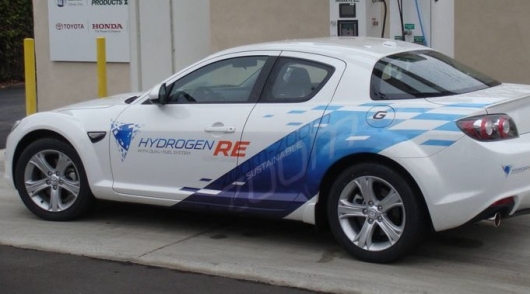Video: how does a hydrogen engine?
Hydrogen engines are actually very similar to gasoline engines, but nevertheless there are significant differences.

You heard about hydrogen engines? Did you know that they are similar to traditional gasoline ice? Surprised? Actually there is nothing surprising. The hydrogen that gasoline engines use a four-stroke system: intake, compression, ignition (fuel combustion) and exhaust. By the way, the sound of the exhaust hydrogen and gasoline engines are very similar. But despite this, these two motors are quite large differences.
Engineer with channel Engineering Explained Jason in Penske decided to talk in a familiar manner, what is the difference between the hydrogen engine from the usual.
The main difference between the two engines in which exhaust produce hydrogen motors. For example, a hydrogen engine is NOx toxic gases produces water (Yes, plain water used). That is, the hydrogen engine water is the main byproduct of the combustion cycle of the fuel. However, due to the heat produced by the hydrogen engine there are some emissions of harmful substances. But unlike gasoline or diesel engines, the level of harmful substances in the exhaust of hydrogen cars is negligible.
Since hydrogen differs from gasoline, the air / fuel mixture in the hydrogen engine is completely different. For this air mixture needs its own degree of compression and the energy for ignition of the fuel mixture. For example, in the hydrogen engine is used, the ratio of oxygen-hydrogen 180:1.
Also hydrogen engine has very high compression, because hydrogen has a higher octane rating than gasoline.
In General, differences of hydrogen from petrol engine large. If you want technical details, see the movie Fenske below.
